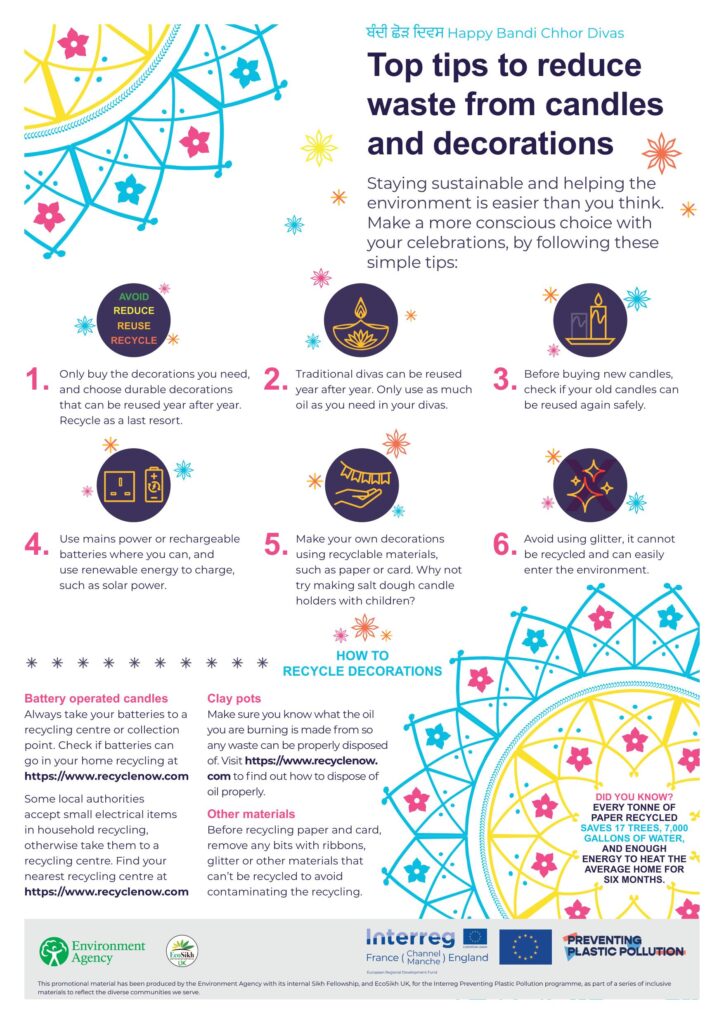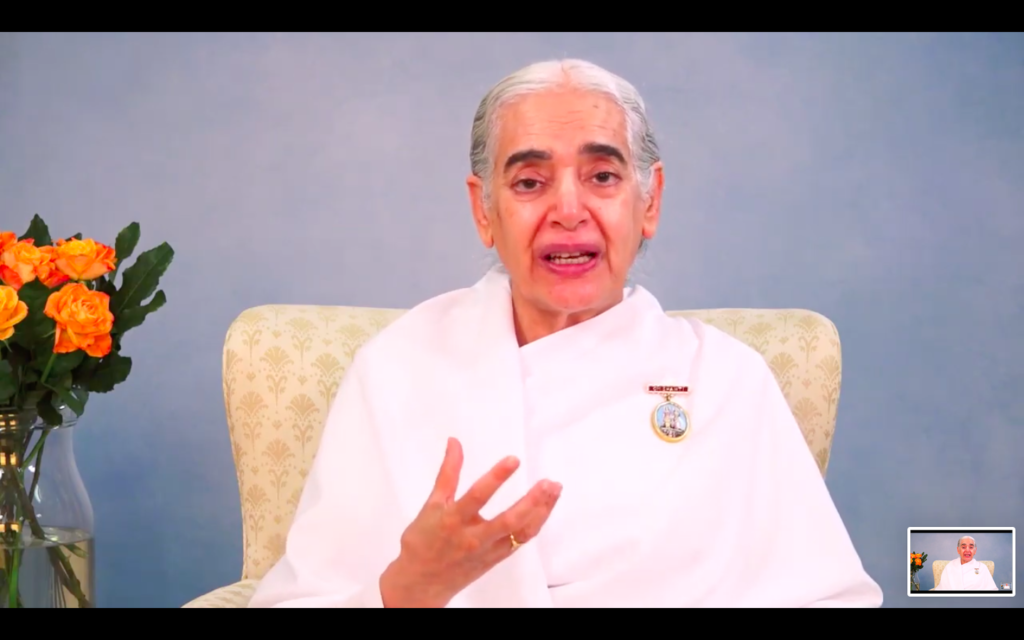Lights in a dark year

As the Indian festival of light approaches on 14 November – celebrated by Hindus, Sikhs, Jains, Brahma Kumaris, and some Buddhists – we talked to some of Faith for the Climate’s network members to hear about links between their faith and the environment.
Dīpāvali, more commonly known as Diwali, celebrates the return of Lord Rama to his kingdom in Ayodhya after 14 years of exile. His citizens were so excited they lit candles to fill the city with light. The occasion is remembered today with a five-day festival incorporating fireworks, games, the lighting of lanterns, offerings to the goddesses Lakshmi and Kali, and a celebration of sisterhood.
Dīpāvali (or Diwali) and the climate
Avnish Thakrar, National Coordinator for Hindu Climate Action, is clear that Dīpāvali offers a chance to reignite a passion for idealism. “For Hindus,” he explains, “light represents Dharma (righteousness) and all the values associated with it such as compassion, love, empathy and selflessness. Darkness, on the other hand, represents ignorance, hatred, ego and selfishness. Dīpāvali reminds us to look inwards and inspires us to replace our dark and demonic qualities with the Divine qualities of Dharma.”
He goes on to explain that the divine and the worldly are not separate in Hinduism: “God’s presence is everywhere on Earth. So, when we see the wonders of the natural world, it’s nothing but a manifestation of the Divine. Therefore, all Hindus have a religious duty to protect the environment and try our best to minimise the harm we’re doing to Mother Earth.”
Dīpāvali provides a perfect opportunity to reflect on consumerism, according to Avnish. “Lord Rama spent 14 years in the forest during his exile and lived in harmony with the natural world during this time,” he says. “For millennia, Hindus have offered a part of our meal to birds and wildlife before we eat.”
“Unfortunately, these values are looked upon as being ‘old fashioned’ in today’s consumeristic world. A challenge the UK Hindu community faces is reviving these old values and making them relevant in our fight against climate change.”
A new role for old traditions
In her opening speech at one of our recent webinars, Drishti Mae, President of the National Hindu Students’ Forum (UK), also emphasises the resonance between environmental concerns and core Hindu principles. She outlines how dharma (also translatable as “that which sustains universal consciousness”) and ahimsa (non-violence or “treading lightly”) are embedded in many aspects of Hinduism. For example, in traditional dancing, performers salute the ground to apologise for stamping upon it.
Drishti says she is seeing a renewed interest among Hindu students in environmental issues. For example, on Seva Day, which focuses on selfless service, students are increasingly choosing projects like tree plantings, upcycling events, and advocating vegan menu options at universities.
It’s impossible to recognise the truth of a shared universal consciousness of all beings, says Drishti, without starting by refining our own minds. “We have to start with ourselves; we have to start at the grass roots before change can amount to anything. And then at some point, hopefully soon, our collective consciousness will tip; and then we’ll see a leap forward into our social character.”
“I believe that our role as faith leaders, as those that hold responsibilities within community centres, is to really put some acceleration behind these behaviour changes.”
Food and the environment
Food is an important arena where changes can be made, according to Trupti Patel, President of the Hindu Forum of Britain and FFTC Trustee. “We strongly believe that no-one living near temples should go hungry,” she explains, “so during festivals extra food, prasadam, is made to feed large numbers of devotees. Until recently, dishes and bowls made from leaves were used for this.”
Nowadays, disposable plastic plates are commonly used for prasadam, but temples are increasingly addressing this. “We are encouraging all temples to consider shifting from plastic to reusable cutlery, as one simple step which can make a big difference.”
Like Avnish and Drishti, Trupti sees adopting more eco-friendly lifestyles as a cycling back to core Hindu values. “I am always urging people to consider vegetarianism,” she says. “People tell me that it’s old-fashioned. But I think it’s about helping people to see the consequences of their actions – the land used to grow food for livestock could be used to help people who are starving.”
A Brahma Kumari perspective
Brahma Kumaris also celebrate Dīpāvali as one of the most significant festivals of the Indian subcontinent. Sister Jayanti of the UK Brahma Kumaris has created a short video for us explaining the connections she sees between the festival and the climate crisis.
“Diwali is the festival of lights, and of sharing gifts, and sweets, and all the other things associated with lovely festivals; but in particular, it’s also the invocation of the goddess Lakshmi,” Sister Jayanti says. She relates how Lakshmi, who is associated with physical and spiritual wealth, can only visit homes where there is cleanliness and light at Dīpāvali.

In order to bring about a spiritually rich society, says Sister Jayanti, we need to cleanse our hearts of consumerism, our homes of plastic and excess, and our communities and natural spaces of pollution. “Where there is cleanliness, the light is able to come, and other virtues can follow.”
A prayer for Dīpāvali
Avnish shared a prayer with us to sum up the spiritual significance of Dīpāvali:
oṃ asato mā sadgamaya,
tamaso mā jyotirgamaya,
mṛtyor mā’mṛtaṃ gamaya,
oṃ śāntiḥ śāntiḥ śāntiḥ.
(Bṛhadāraṇyaka Upaniṣad 1.3.28.)
“Lead us from ignorance to truth, darkness to light, immortality to mortality. Peace, peace, peace.”
We wish a joyous and bright Dīpāvali to all those celebrating this November!
